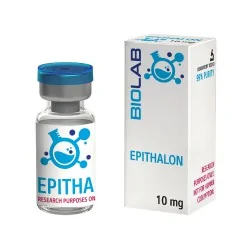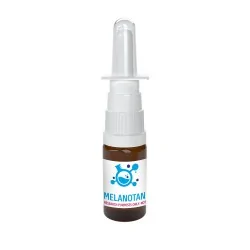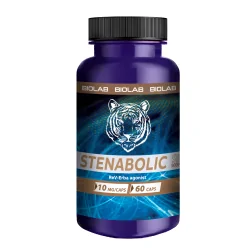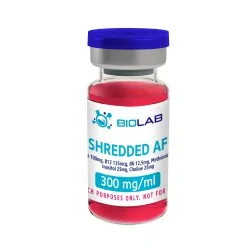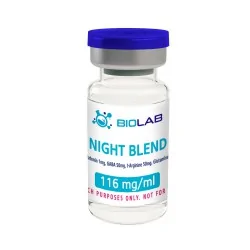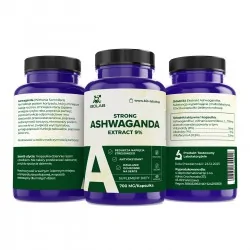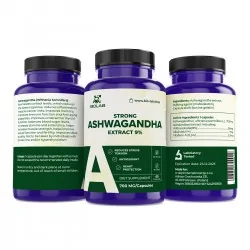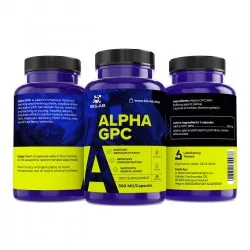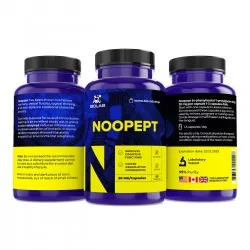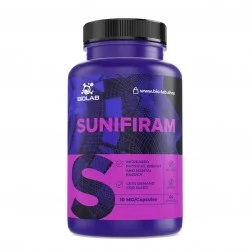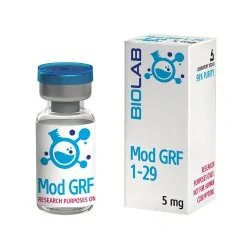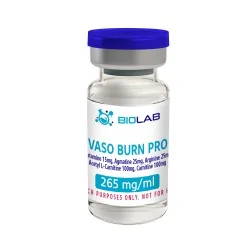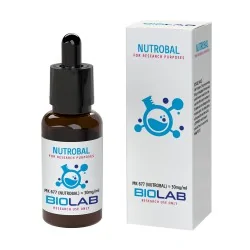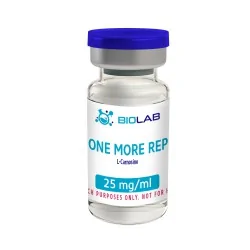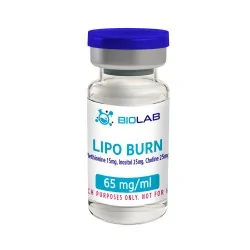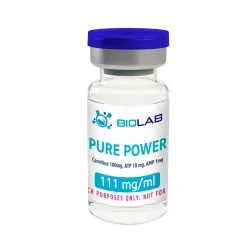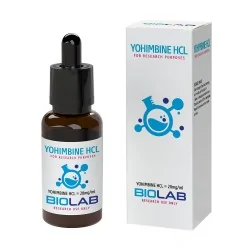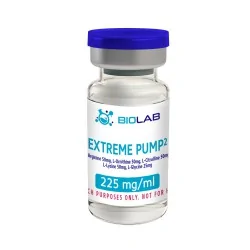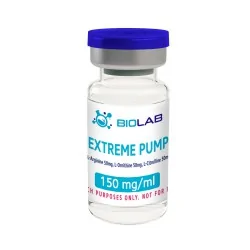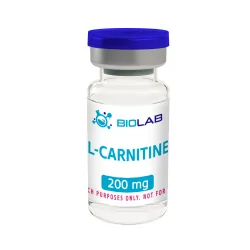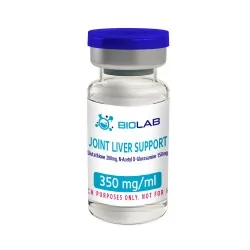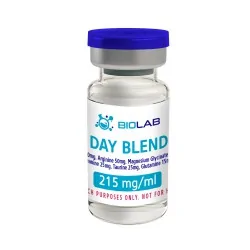-
Peptides
Peptides
back
-
- show all
-
-
Purpose
Return
- Peptides for bodybuilding
- Biomimetic peptides
- Peptides for the gym
- Peptides for bulk
- Natural peptides
- Peptides for joints
- Peptides for reduction
- Peptides for fat burning
- Peptides for weight loss
- Peptides for the muscles
- Peptides for regeneration
- Peptides for libido
- Peptides for injuries
- Peptides for athletes
- Peptides in tablets
- Peptides in injection
- Spray peptides
-
Type
Return
- BPC 157
- hgh
- ghk-cu
- ghrp-6
- ghrp-2
- grf
- tb-500
- oxytocin
- semax
- melanotan
- pt-141
- epithalon
- selank
- thymosin
- cjc-1295
- ipamorelin
- peg-mgf
- adamax
- kisspeptin
- dsip
- sermorelin
- n-acetyl
- arg-bpc
- thymalin
- 5-amino 1MQ
- alarelin
- mots-c
- igf-1 Lr3
- IGF DES
- GHRP2
- Fragment
- CJC DAC
- Adamax
- Cortagen
- Snap 8
- B7-33
- Melanotan 2
- Selank
- Thymosin alpha 1
- Mots
- VIP
- LL-37
- Livagen
- P-21
- KPV
- Ara 290
- L21
- Acth 1-39
- matrixyl
- TRH
- Larazotide acetate
- glp-1
- GC-1 SOBETIROME
- TB-4 FRAG+BPC-157 ARG
- AOD-9604
- cardiogen
- prostamax
- pancragen
- bronchogen
- retatrutide
- Thrombin peptide Tp508
- SLU-PP-332
- LIPOTROPIN
- THYMOGEN ALPHA-1
- Nutrobal
-
Purpose
Return
-
Peptide calculator
-
- show all
-
- Sarms Sarms back
-
- show all
-
Produkty
- Amino acids Amino acids back
-
- show all
-
Aminokwasy
-
- show all
-
Produkty
- Supplements Supplements back
-
- show all
-
Supplements
-
Purpose
Return
- Weight Loss Supplements
- Supplements for memory and concentration
- Energy supplements
- Hair and nail supplements
- Cholesterol supplements
- Supplements for the complexion and skin
- Sleep supplements
- Gym supplements
- Supplements for reduction and sculpture
- Eye and vision supplements
- Supplements for stress and nerves
- Supplements for regeneration and fatigue
- Strength and fitness supplements
- Joint supplements
- Liver supplements
- Acne Supplements
- Kidney supplements
- Knee supplements
- High blood pressure supplements
- Cellulite supplements
- Bone supplements
- Tendon supplements
- Supplements for potency and libido
- Dopamine supplements
- Serotonin supplements
-
Type
Return
- Ashwagandha
- Omega 3
- Vitamin D3
- Magnesium citrate
- N-Acetylcysteine
- Biotin
- Collagen
- L-Theanine
- 5-Hydroxytryptophan
- Forskolin
- Resveratrol
- Coenzyme Q10
- PQQ
- Rhodiola rosea
- Canna
- Kava Kava
- TUDCA
- Cholinolytics
- berberys
- inozytol
- sodium butyrate
- lactoferrin
- selenium
- cordyceps
- Quercetin
- lions mane
- glycine
- curcumin
- alpha lipoic acid
- shilajt
- apigenin
- dim
- chasteberry
- baikal thyroid
- reishi
- pycnogenol
- phosphatidylserine
- chromium picolinate
- astragalus
- nad+
- tulsi
- egcg
- magnesium citrate
- nalt
- pana ginseng
- synephrine
- zinc picolinate
- cherry tart
- magnesium taurate
- magnesium l-threonate
- adaptogens Return
-
Purpose
Return
-
- show all
-
Produkty
- Nootropics Nootropics back
-
- show all
-
Nootropy
-
- show all
-
Produkty
- Beauty Beauty back
-
- show all
-
- Preparation Preparation back
-
- show all
-
- Pre-workouts
- Slimming preparations
- Preparations for the joints
- Acne preparations
- Preparations to strengthen the body
- Preparations for the sinuses
- Erection preparations
- Hair preparations
- Preparations for the liver
- Nail preparations
- Sleep preparations
- Intestinal preparations
- Circadian rhythm disorders
- Preparations for the heart
- Preparations for libido
- Preparations for malnutrition
- Preparations for sedation
- Preparations for strengthening
- Preparations for the kidneys
- Fat burning preparations
- Preparations to reduce appetite
- Preparations for growth
- Preparations for depression
- Preparations for energy
- Bone preparations
- Preparations for muscle mass
- Skin bronzing preparations
- Skin rejuvenating preparations
- Preparations for the condition
- Preparations for the work of the brain
- Anti-aging preparations
- Preparations for regeneration
- Growth hormone replacements
- Injury preparations
Amino acids
Amino acids are organic compounds that play many key roles in the human body. They are needed for the proper course of life processes, such as the structure of proteins and the synthesis of hormones and neurotransmitters. Amino acids are organic compounds from which proteins are made. More than 300 naturally occurring amino acids are known.
Showing 1-12 of 20 item(s)Filter By
Price
Price
-
€21.00 - €50.00
Active filters
Amino acids - what are they and why are they so important?
Amino acids are organic compounds, some of which are essential for maintaining key processes in the body (such as muscle metabolism or regulation of growth hormone production). While some of the amino acids our body is able to produce on its own, others we can only supply ourselves with externally - with a proper diet and supplements in any form (this role can be fulfilled, for example, by liquid amino acids).
For people who regularly train, the need for particular amino acids may be higher than in non-exercisers. That's why it's so important to identify your individual needs and ensure that their supply is adequate for your lifestyle and the effort you put into training. If you are not sure which products to reach for, the Biolab amino acid store allows you to ask questions via email.
And if the topic of amino acids is familiar to you, you can go straight to our catalog and find something for you.
Families of amino acids
The basic division of amino acids takes into account the role they play in the body. Thus, we distinguish:
- protein amino acids (so-called natural amino acids), i.e. essential amino acids that have a building function and are the most essential for the body. Proteins, by the way, are polymers built from amino acids.
- non-protein amino acids, which have other functions, equally important especially when you want to meet your training goals.
Amino acids are also often divided by whether the body is able to synthesize them on its own, or whether an external supply is required, as we mentioned a bit at the very beginning.
Those amino acids that the body is able to produce are endogenous amino acids. Among them are alanine (associated with glucose transport to the brain) and glutamic acid, known for its properties that facilitate digestion and abolish fatigue. It is worth mentioning that the mere fact that the body is able to produce these amino acids does not always mean that their amount in our body is correct.
On the other hand, the amino acids that the body does not synthesize, and which we should supply ourselves with from the outside, are exogenous amino acids. There are 8 amino acids in this group: phenylalanine, isoleucine, leucine, lysine, methionine, threonine, tryptophan and valine. They are responsible for many important health parameters, such as immunity, good functioning of the nervous system, faster healing of wounds, muscle regeneration, quality sleep or better overall well-being.
Interestingly, there is another 3 group: conditionally essential amino acids. These are those amino acids that the human body can produce on its own, but provided that other amino acids (so-called precursors) are at the right level. Among them are arginine, cysteine, glutamine and glycine - all of which affect aspects of training and bodybuilding.
Use of amino acids
Because of the broad spectrum of action of amino acids, it is safe to say that everyone will benefit from their supplementation. They are most commonly used in:
- supplements, e.g. for people exercising or undergoing heavy exertion (including intellectual),
- cosmetics - amino acids have strong anti-aging and moisturizing effects, hence they can help replenish water deficiencies in dehydrated skin cells.
Natural amino acids in food
Even if you consume a good amount of protein, a lack of any of the amino acids may result in them not fulfilling their nutritional role 100 percent. That's why, when it comes to amino acids, supplementation combined with a rational, varied diet is the best you can do for your body.
What are the best sources of amino acids in the diet?
- meat (especially poultry and fish),
- eggs,
- dairy products,
- green vegetables such as Brussels sprouts, peas, broccoli or spinach,
- fruits (e.g. tryptophan-rich bananas),
- cereals (sesame, nuts, almonds)
- cereal products and grains.
Amino acids, unfortunately, do not store, so their possible surplus is used by the body as energy. This means that the supply of amino acids should be remembered every day, because it is impossible to provide them to the body "in stock".
Best amino acids - recommendations from our offer
Our well-stocked amino acid online store offers various types of substances. They can be used a bit more broadly (e.g. as amino acids for athletes), as well as more narrowly (e.g. amino acids after training).
Amino acid-rich supplements from Biolab are blends of the most valuable amino acids with the addition of vitamins, vitaminoids, nucleotides or neurohormones, which perfectly complement each other.
When it comes to our supplements, the amino acids they contain are mainly methionine, gaba, glutamine, l-arginine, agmatine (arginine derivative), l-ornithine, l-citrulline, l-carnosine, lysine and glycine. You'll also find l-carnitine, synthesized from two other amino acids (lysine and methionine), among others.
- those looking for a fat burner, good post-workout recovery and increased endurance are recommended to Shredded Af,
- for those who want better adaptation of the body to exercise, but also increased energy without side effects, we have Pure Power,
- Night Blend is dedicated to those who want to rebuild muscle while regulating their diurnal cycle and enjoying quality sleep,
- for those who want to improve their body's fat metabolism while feeling the "pump" effect, we have prepared Extreme Pump and Extreme Pump 2.
- Lipo Burn and Vaso Burn Pro are suggestions for those who are looking for real boosters for getting rid of unwanted body fat, but expect a more broad spectrum of action from the formula.
Remember also that you can buy pure L-carnitine and L-carnosine at Biolab.
.
What are amino acids?
Amino acids are organic compounds that build organisms. Some of them are essential for the proper functioning of the body. They are divided into endogenous (i.e., those that the human body can produce on its own) and exogenous (those that must be supplied "from the outside," such as with the diet or in the form of supplementation).
Why take amino acids?
Amino acids are great for supporting people exposed to heavy exertion or stress, as well as those who want to enjoy fitness and a healthy appearance. Among other things, they can speed up the body's regeneration, regulate the diurnal rhythm or rehydrate dehydrated skin cells.
What happens to excess amino acids in the body?
Both deficiency and excess of amino acids in the body is not a desirable state. When there are too many amino acids, the protein-laden kidneys in particular will suffer. It can also have a negative impact on overall mood and well-being.
Newsletter
SIGN UP AND STAY UP TO DATE!
We specialize in wholesale and retail supply of high quality peptides.
((modalTitle))
((confirmMessage))
((title))
- Preparation Preparation back
- Beauty Beauty back
- Nootropics Nootropics back
- Supplements Supplements back
- Amino acids Amino acids back
- Sarms Sarms back
-

